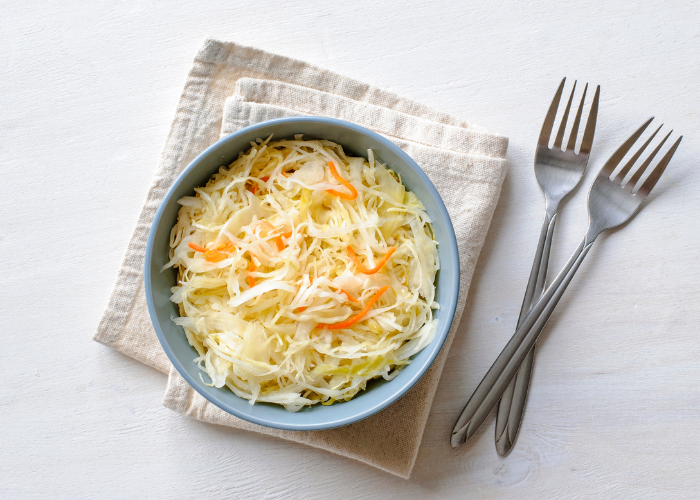
Sauerkraut and other fermented foods such as yogurt, kefir, and kvass are considered some of the first (good for you!) processed food products consumed by humans. They have been a food staple of nearly all cultures for thousands of years.
Once upon a time, fermentation—when Lactobacillus bacteria beneficially alters food—was one of only a few methods of preservation to prevent food-borne illness. Of course, it is likely that our ancestors also recognized the extraordinary healing properties of these lacto-fermented foods and drinks.
We have now proven with research that sauerkraut is good for you. The benefits of sauerkraut and other fermented foods are primarily due to the variety of beneficial microbes and the enhanced nutritional bioavailability of ferments. Yep, fermented veggies and dairy products provide more nutrients, particularly antioxidants, than their non-fermented counterparts (1).
What is fermented food?
The fermentation of food is a metabolic process where microbes, such as yeasts and bacteria beneficially change the original food.
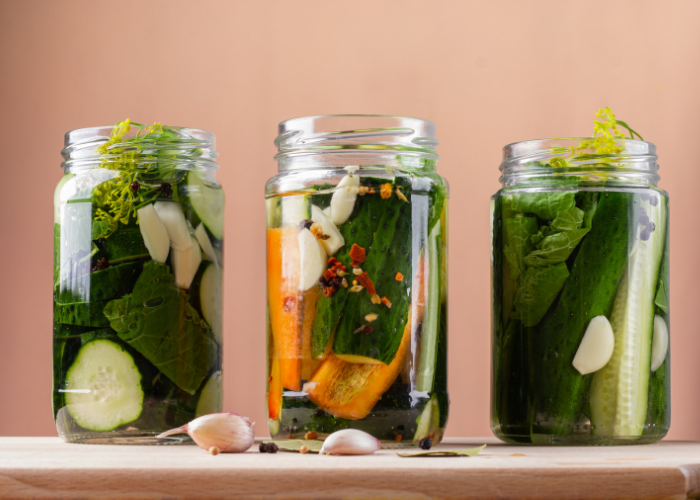
When a food is fermented in a controlled environment, such as a clean home kitchen, it allows these beneficial microbes to flourish, preventing the overgrowth of pathogenic microbes (the ones that can make you sick).
The more popular name for these beneficial microbes is probiotics. Probiotics are good for us because they can improve gut health and the health of our whole body. Our gut is home to trillions of bacteria, yeasts, and fungi that are vitally important due to their roles in nutrient absorption, immune function, and even the way our brains work and perceive the outside world. These bugs are collectively called the microbiome.
Eating probiotic-rich foods is a great way to support our microbiome. The fermentation process also provides protein-digesting enzymes, or proteases, that enhance nutrient bioavailability and make food easier to digest.
Sauerkraut is good for you…and so are other fermented foods!
Research has shown us that fermented foods and beverages provide numerous health benefits such as better blood sugar levels, lower cholesterol, stronger bones, a happier mood, and a healthier gut (2).
Gut health, specifically, is essential for the health of our entire body. The health of the gut begins developing in utero, and our children’s gut flora plays a big part in their chances of developing issues like asthma and allergies, obesity, and inflammatory bowel disease (2).
If you have been hesitant to make your own fermented food because it sounds too complex, let me reassure you, it’s easier than making a batch of pancakes. Of course, just like any recipe, you can make it as difficult as you want to, but most fermented food is just the original food plus salt and spices.
Almost any food can be fermented, and there are thousands of varieties of fermented foods. Sauerkraut is one of the best-known ferments. Originating in China over 2,000 years ago and eventually making its way to Eastern Europe, sauerkraut is now primarily associated with German culture. And sauerkraut is just cabbage and salt!
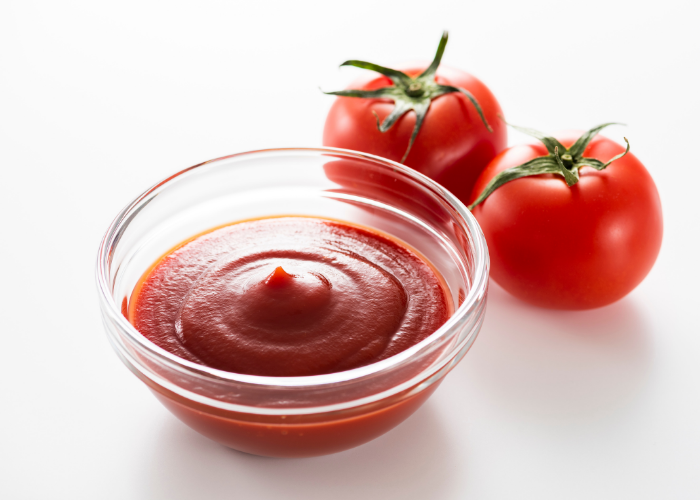
Amazingly, another well-known ferment is ketchup, although the sweetened condiment that most of us are used to is nothing like the original fermented version. Originally, ketchup was very savory, and the key ingredient was fermented fish! That being said, some fermented foods are an acquired taste. But once you get a taste for them, you will begin to crave the sour, salty, and umami flavors.
My family’s favorite fermented food is pickles. They are a big hit in our home and a simple enough recipe for the kids to make themselves—no heat is required.
The hardest part is waiting for the finished product! You will have to wait about two weeks for them to be ready. But I promise it is completely worth it. We love to turn pickle making into a fun science experiment, observing the jar each day to look for bubbles or any other signs of the fermentation process.
These probiotic-packed pickles do not last long in our home, so we usually make a couple of batches at once or start a new batch as soon as the first one is ready.
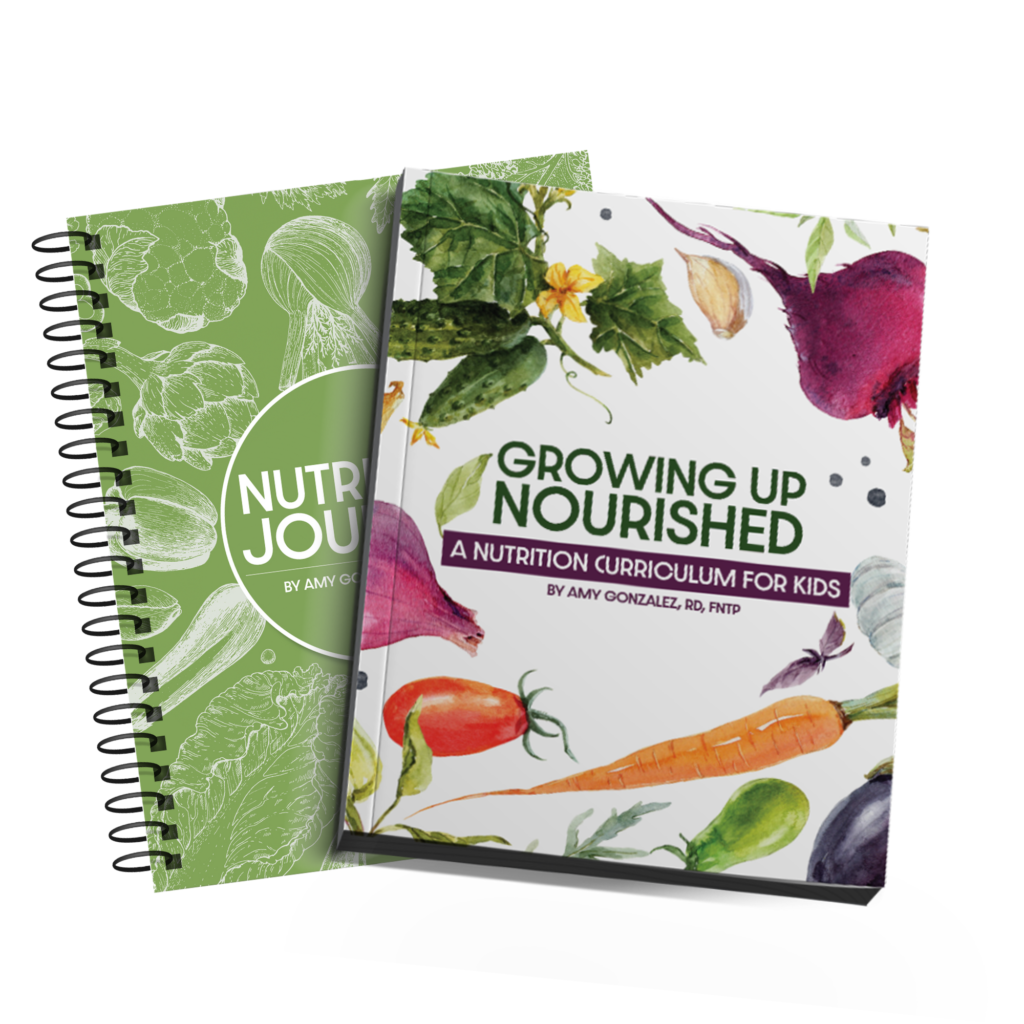
This recipe is straight from my holistic, homeschool nutrition curriculum, Growing Up Nourished: A Nutrition Curriculum for Kids. Click here to receive a free lesson and see if the program is the right fit for your family.
I hope you love these probiotic pickles as much as we do. Be sure to let me know what you think in the comment section below!
Easy Dill Probiotic Pickles
INGREDIENTS:
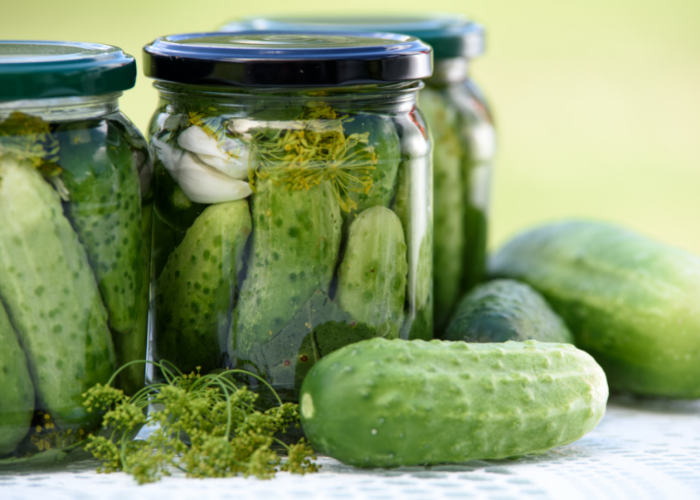
- 1 pound pickling cucumbers
- 2 1/2 cups non-chlorinated water
- 1 tablespoons Himilayan sea salt
- 4 garlic cloves, sliced
- 1/2 teaspoon peppercorn
- 1/2 teaspoon mustard seed
- 1/2 teaspoon coriander seeds
- Handful of fresh dill
- 1-quart mason jar
DIRECTIONS:
- Wash cucumbers. Scrub the blossom side well or cut off. The bloom contains enzymes that makes pickles soft.
- Make the brine by mixing water and sea salt until dissolved.
- In a clean quart jars, layer the spices and cucumbers, tightly packing them in to the jar. Add garlic and top with dill.
- Pour the brine over the cucumbers, pressing down so that everything is sumberged with about 1 inch of headspace. Use a fermentation weight or a ziplock bag with a little water inside to hold the contents below the brine.
- Cover jar with a loose lid and place in a cool dark place for at least 3-7 days. For more sour pickles, let ferment for 2-3 weeks. You have life when it starts bubbling and the liquid turns cloudy. After the pickles reach your desired taste preference, store in the refrigerator.
Be the first to comment